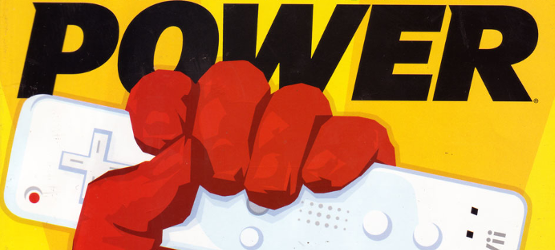As the year has progressed, more and more games print publications have closed up shop. It’s a sad state of affairs that shows an undeniable trend towards a digital-only future. Daily Reaction’s Seb and Dan discuss what has happened, why and what’s next.
Seb: It’s definitely very tragic to see the death of print media happening right before our eyes. Over here in the UK, PSM3 and XBW are closing down before Christmas and over in the States PTOM is set to go along with Nintendo Power.
Nintendo Power began 24 years ago and is now coming to an end. They began as almost a bulletin board of what was happening in Nintendo news, published by Nintendo themselves. It gave people strategy guides, helping people with harder games – they didn’t just make the games super easy, like they do now. Future Publishing took over in 2007, adding NP to its then-growing roster of games mag
It, along with PTOM and all the other gaming mags of old, were people’s gateway to the world of gaming. It’s how they knew what was coming out, was was probably good, and what to avoid.
Dan: Yeah it is very sad to see some of the last standing print gaming magazines going down, as there already only so few left. As the internet has become the mainstay for the most current and up to date source for news, and all things within the industry, it is understandable that print as a news medium is becoming more and more obsolete. Yet, as someone who grew up reading GamePro, Nintendo Power, and EGM, it’s hard to believe that the only one left is EGM, and locating copies is harder than ever.
As almost every major gaming news publication has already migrated over to the internet, it’s easy to see that the ability to reach every person connected to the web is one of the strongest methods of communication available to date. We are now able to have information spread throughout the world within seconds, without having to wait for the printing process, and distribution of a product to inform people of anything from the smallest detail to the most life altering events. Sadly, with this comes not only the benefits of having news instantly transferred to you, but we are also inundated with pointless articles, and spotty journalism. This ability to transfer news has created competition in grabbing a readers attention through sensationalism, instead of enlightening readers and giving them something to ponder.

Seb: Exactly, the internet is a brilliant tool for news (full disclosure: I work for a games news site) and can be an incredible source for in-depth features – but mostly it’s not. All media is flawed, it relies on commercialism, it relies on getting money by making you read it. So in newspapers they’ll go with massive headlines like “Obama Kisses Romney”, even if it requires stretching the truth a little.
But the great thing about print is the sensationalism is mainly kept to that front page, because that’s the only point at which they need to draw you in. Once they’ve done that, they can give you the longer features that are of a higher quality.
With online, every single article is a potential goldmine of traffic, and each one needs to draw people in all over again. So that leads to terrible sensationalism to simply get people clicking. It also leads to a focus on pumping out tons of short posts so that readers go to a bunch of ad-covered pages, rather than staying on one massive, well thought out page.
Despite the flaws of internet games news, it is inevitably going to win – less people are buying mags every month, the economy sucks, and certain sites out there profit by uploading scans of magazines and putting them on N4G.
One avenue print as a whole is desperately trying to move into is having e-publications on tablets and smartphones. The success of this is still debatable, and piracy is again an issue, but it could give them a way to keep going.
Or we could just hope that online games websites do more quality features.
Dan: Luckily there are a few major print magazines still going out into the wild, but sadly we will see them die off slowly. Although, Game Informer have found a way to sustain themselves in this current climate that is killing off major print publications from every type of medium. Sadly, the only way that GI found a way to weather the times, is that they are owned by GameStop, and are pushed into customers hands on each sale of merchandise. This can be considered a conflict of interest, but that is a topic for another day. The fact of the matter is, that without GameStop pushing the GI magazine, it is doubtful that we would be seeing it for much longer.
As the end of print nears, we are seeing less professional work being done as well as a downgrade in the perception of games journalism. This is something that as a writer is very disheartening, especially when you see the strength that sensational articles get by simply stating a big title’s name and top 10 or new something or other. So as we see the industry move away from the old way of delivering news, we are also seeing a change in the climate of type of news being delivered. Long gone are the intelligent and thought provoking articles of years past, now, as attention spans diminish and the ability to read drops, audiences are expecting a slimmed down and direct method of news. This ‘news lite’ leaves out much of the ability for readers to see a full picture, and leaves too many openings for immature and unprofessional writers to congest real news and information from actually reaching the masses.
Do you still subscribe to games magazines? Are you worried about the average quality of online news? Did you hear about that rumor from this guy on Twitter that there’s a PS4 on the loose? Share your thoughts in the comments below, see if we’ll print your made up comments by messaging us on Twitter at Seb and Dan, and don’t forget to email us magazine scans.
Be sure to email DR ideas, podcast comments and general stupid stuff to DailyReaction@PlayStationLifeStyle.net to enter a competition to win nothing.





